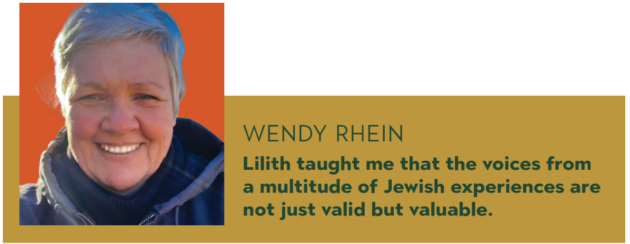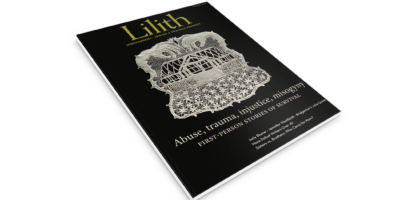
My 47th Kill
SHE WAS MY 47TH KILL since August. Some were bigger, some louder, but she was one of the older ones. All were fragile lives that I held before their last gasping breath.
I held her close to my chest as I walked towards the stained tree trunk, the same spot the previous 46 had lost their lives.
She calmed down as I firmly pulled her close, whispering and humming as we crossed the crisping leaves and waning light. “It’s all right. I’ve got you. It’s ok.” I swayed as I held her, like cradling a baby.
I recalled the days I would take my sons to the doctor, knowing a shot was in their near future. I’d hold their hands, tell them it would all be ok. Let’s do this quick and easy, I’d say, and then we will get ice cream. They would look at me with a mix of betrayal and hope and love. I’m sorry. I know. It’s almost over. I say these words to her as she quivers in my arms, the same words I said to my babies years ago. But the similarities end there.
“Thank you for feeding my family. Thank you for the joy you have brought me. Thank you for nourishing this land and our bodies. Amen.”

And with that, I place the chicken head down in the kill cone, gently pull its neck and comb through the small opening, part the feathers on her neck as the blood rushes to her head, creating a quieted trance like state. And then I kill her. One swift slice across the neck, careful to sever the trachea and esophagus and the two primary blood carrying arteries.
It is a sin to hesitate. A sin to not do it swiftly and completely. No sawing, no dull or nicked blades. There is suffering, let’s be honest, but not neglect. Every movement is intentional and to me, holy.
I am not a trained shochet, a Jewishly- trained butcher. In fact there are not many women who are. While the Reform, Conservative and Reconstructionist branches of Judaism have had extensive dialogue and study on this topic, in 1480 the rabbis decided it is kosher for women to butcher. However, Orthodox rabbis do not train women in shechita, the laws of slaughter, as we are inherently unclean— and as a convert to Judaism and a person with a uterus, I had a double whammy against me. But that does not keep me from processing my own poultry to feed my family. It may not be Kosher with a capital K, but it is kosher to me.
In 2021 I stepped foot onto my ten acre homestead for the first time, shepherding my two teenage sons from our suburban D.C. home to rural North Carolina. We were, and still are, the only Jews in our small 2000 person community. Quickly we added livestock—first laying hens, then meat chickens, turkeys, a cow, goats, and lastly sheep, all of whom have multiple purposes here. One can’t have a singular purpose, whether it is clearing the brambles, or eating the grass or naturally fertilizing the pastures or eating the unwanted bugs. We all have to contribute, to grow and thrive, and to give back when called upon to do so. Human or livestock or poultry, all of us.

As the hen bleeds out, I hold her feet to ensure she doesn’t flap around. The old adage of a chicken with its head cut off is true. She twitches and thrashes, I marvel at the small amount of blood that each body holds as it drips into the waiting bucket. And I pray. After a brief eternity she begins to calm and relax, her feet stop jerking and the dripping slows. Her body releases and her feathers fan out in a beautiful white wave.
Thank you God for providing me and my family with this chicken to nourish our bodies. Thank you for enabling me to be strong and kind enough to raise this chicken from a day old chick that arrived in the mail. Thank you for the fortitude to do what I need to do to provide for my family.
I did not grow up this way. I am a child of suburban Detroit in the 80s where bike rides with a pack of neighbor kids and twilight plunges in cooling lakes dominated my outdoor time. The closest I got to knowing where my food came from was an annual trip to pick blueberries followed by a footlong hotdog at A&W. As an adult I started making other choices, reading with horror about the conditions at kosher butchery sites. I struggled to pay the higher prices for hekhshered foods and started to shy away from the circles and letters and leaning into words like organic and humane and local.
Kashrut, the laws and practices of “keeping kosher” became another system of oppression to me, another way of controlling the resources of the many by the few, restricting what we can have and when and dictating what we shall pay for the privilege. The factory processing of kosher chicken was the antithesis of what I hold dear in my Jewish faith—compassion, justice, ritual, God.
Two years ago I moved from the suburbs of Washington D.C. to rural North Carolina to fulfill a lifelong dream of a homestead where I would raise the food for my family as best I could, getting us closer to whole foods and community interdependence instead of Whole Foods.
I have not left society behind. My day job as a Jewish nonprofit professional keeps me tied to my laptop most hours of the workday, but we have managed as a family to raise our own turkeys, chickens, sheep and cows this year in addition to a garden. We keep what we call “eco- kosher,” eating food raised by people we respect under healthy and compassionate conditions. We respect the lives fueling us and we fuel them in their lives on open fields full of green grasses, grubs, clean water and leftover kitchen scraps.
I remove the hen from the kill cone by her red and scaly feet. If you have spent time with a chicken, you will see the blueprint of the dinosaur ancestors peeking through. There is no need to cradle her now, but I am still gentle. I can feel her animal soul hanging around. I lay her lifeless body on the butchering table, my 5 filet knives to my left, poultry shears to my right, an ice chest with water and a glug of apple cider vinegar ready to cool the carcass and draw out any remaining blood.
The Torah tells us that Moses received instructions on meat butchery from God. “Thou shalt slaughter of thy herd and of thy flock, which the Lord hath given thee.” This first recipe passed down from generation to generation has many more rules including how to kill the animal, what pieces are forbidden to eat and what you must do to prepare the meat for consumption. We are forbidden from killing the parent with its young on the same day.
With bird 47, I make quick work of the process. Remove the feet first, clip the wings. Carefully separate the windpipe from the crop and prepare the neck. Flip the bird and start at the other end. Evisceration is quick. Plucking is not. As our oral tradition commands, I check the lungs for illness or concerns. They are rosy and healthy looking. She is fit to eat.
The whole process, from cradle to freezer, takes me 18 minutes. I am fast and efficient in my movements, my mis en place of tools and bags and ice and sharpeners helps. Focus helps. Gratitude helps. Humility is required.
Now, months later, I open the chest freezer and see the tightly closed bags of chicken roasters available for dinner. I don’t know which one is 47. I did not label them. But I know where they came from and what they ate. I know that they lived by my daily commitment to the animals we raise: may you have one bad day. It may not be the first time but each time I am struck by the abundance and what it took me to get here. Barach atah Adonai, Eloheinu Melech ha-olam, she- hecheyanu v’key’manu v’higiyanu lazman hazeh. Amen. Praised are you, Spirit of the universe, who keeps us alive, sustains us, and brings us to this moment. Amen.
Wendy Rhein is a philanthropy executive, coach for development professionals, and Jewish farmer at her farm, Chutzpah Hollow.



